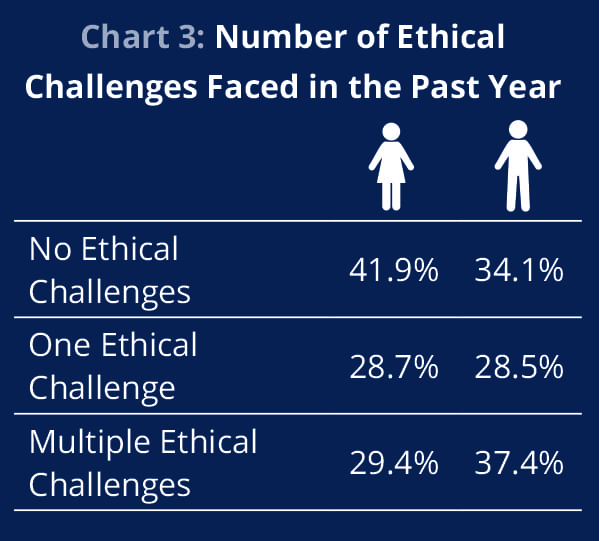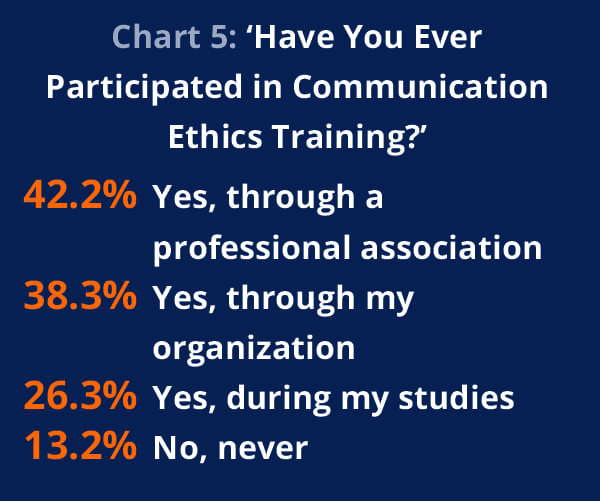
It’s arguable that ethical issues are the largest contributor to PR crises.
For example, you can see embezzlement as an ethical lapse, ditto putting profits ahead of safety. With senior executives, there are multiple ethics and moral concerns that can lead to crisis, including decision-making (hiring and firing), public utterances and behavior at work and home.
For communicators, ethics permeate their daily activity.
“Whether we think about it or not, ethical considerations in business communication surround us like the air we breathe,” is how The Plank Center’s new North America Communication Monitor (NACM) 2020-2021 puts it.
For Mike Paul, president, Reputation Doctor LLC and host of “Reputations In Crisis,” ethical considerations are exploding. Work from home, he says, has wide implications for ethics and will touch communicators.
Staff is less fearful “to speak truth to power,” Paul says. “Remote, virtual and digital working brings courage to workers of all kinds,” he adds. “There is less space [for companies] to hide, spin and lie.”

Certainly, more than 70 percent of the 1,046 communicators from the US and Canada surveyed in the NACM reported dealing with ethical issues in the past year (see Chart 1).
Internal communicators were most likely to report handling multiple ethical issues (38.5 percent), slightly more than communicators overall (36.7). Next were online communicators (36.1 percent), strategy and coordination communicators (35.6 percent), community relations pros (33.6 percent) and PR pros who handle marketing, brand and consumer communication (30.3 percent).

Consultancies and agencies were most prone to multiple ethics issues (Chart 2).

And there’s a gender gap. Male communicators report more ethical challenges than females do (see Chart 3).

With so much riding on ethics, it’s natural to assume at least half of communicators have received ethics training recently. Not so fast, as Chart 4 shows.
Of course, some will argue this year’s NACM is unique owing to COVID-19. It’s possible, this group will contend, that ethics training was on hold during the pandemic. Maybe.
Most Have Ethics Training
On the other hand, we know that crisis cares little about global viruses. Crisis arrives on its schedule, not yours. At least some companies heeded that advice and offered staff ethics training.

For example, NACM found the majority of PR pros participated in communication ethics training or classes (see Chart 5), though 53.2 percent trained one or more years ago.
In addition, a somewhat distressing finding is that communicators in their 30s and 40s have more training in communication ethics than those in their 20s and 60s.
The NACM found communicators use a mix of ethics guidelines when handling issues. Communicators in the US used professional association guidelines (77.5 percent), organizational guidelines (78.9) and their own values (77.8). The mix in Canada was similar at 81.6, 80.7 and 76.9, respectively.
One of the most interesting set of data points examined social media actions that posed ethical issues for communicators.
“Ethical concerns related to social media strategies are particularly prevalent,” NACM found.
Breaking down the list, it found, for example, that nearly 70 percent of communicators are extremely or moderately concerned about using bots, paying social media influencers for favorable reviews/mentions (72 percent), applying big data to analyze/profile audiences (also 72 percent) and using sponsored social media posts and articles “on news websites that look like regular content” (67.4%).
The top social media ethical issue was using bots to generate feedback and ‘create’ followers. Right behind that was paying influencers for favorable mentions.
The youngest respondents (29 and younger) were far more concerned than other age groups about about asking employees to distribute organizational information through their private social media accounts.
Compared to other age groups, respondents 40 to 49 were significantly more concerned about editing organizational entries in public wikis.
Those 60 and older were significantly more concerned about using big data mining techniques to gather personal data about audiences.
Dr. Juan Meng, NACM’s lead researcher and associate professor at the University of Georgia, says the study shows clearly “the ethical practice of social media is vital” and that using bots to generate feedback and followers and paying social media influencers to communicate favorably present ethical challenges.
Organizations should provide “more practical ethical guidance and resources, as well as training on communication ethics” to help practitioners cope with ethical challenges around digital and social communication.”
In addition, Meng notes communicators also voiced a need to develop data and technology competencies.
